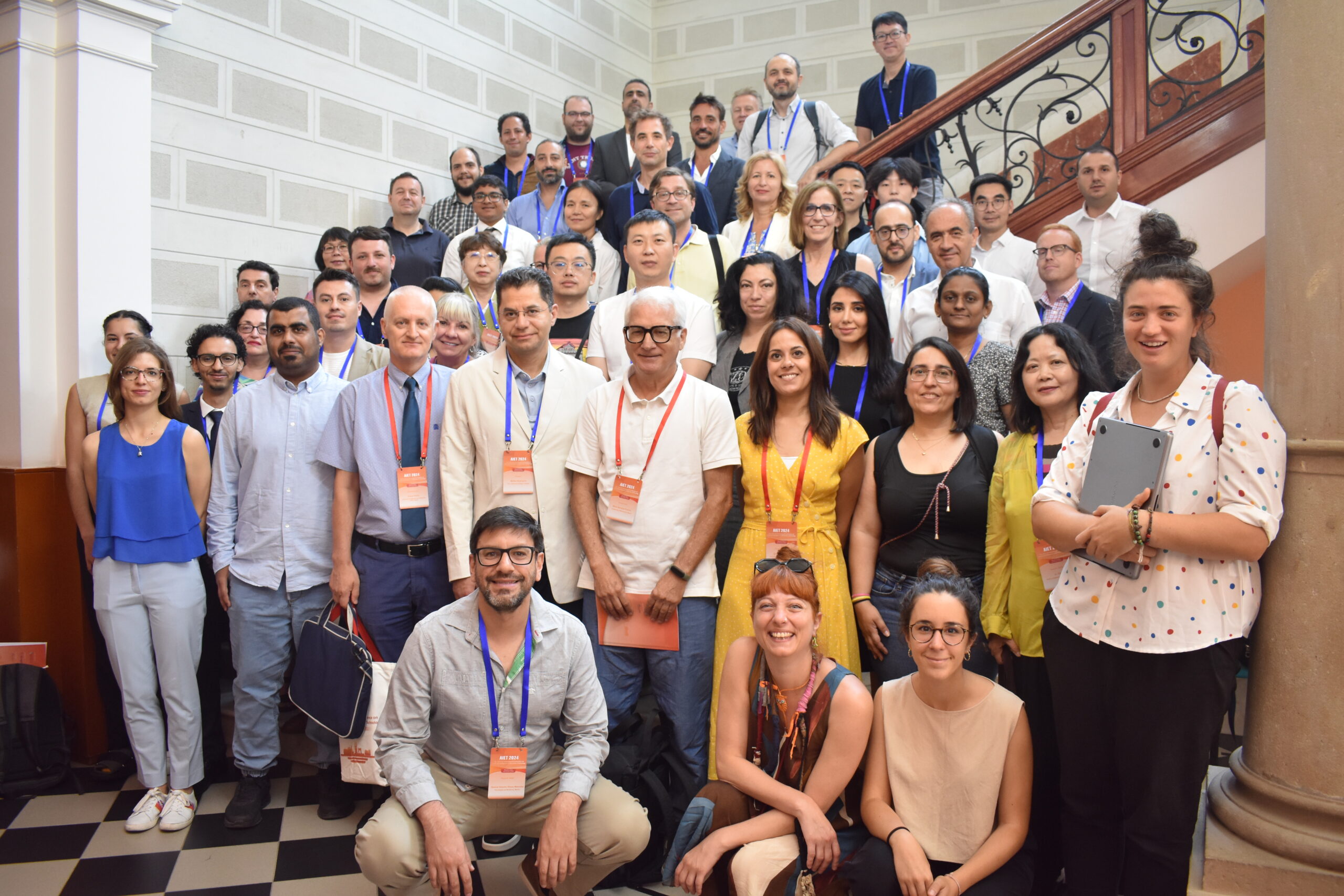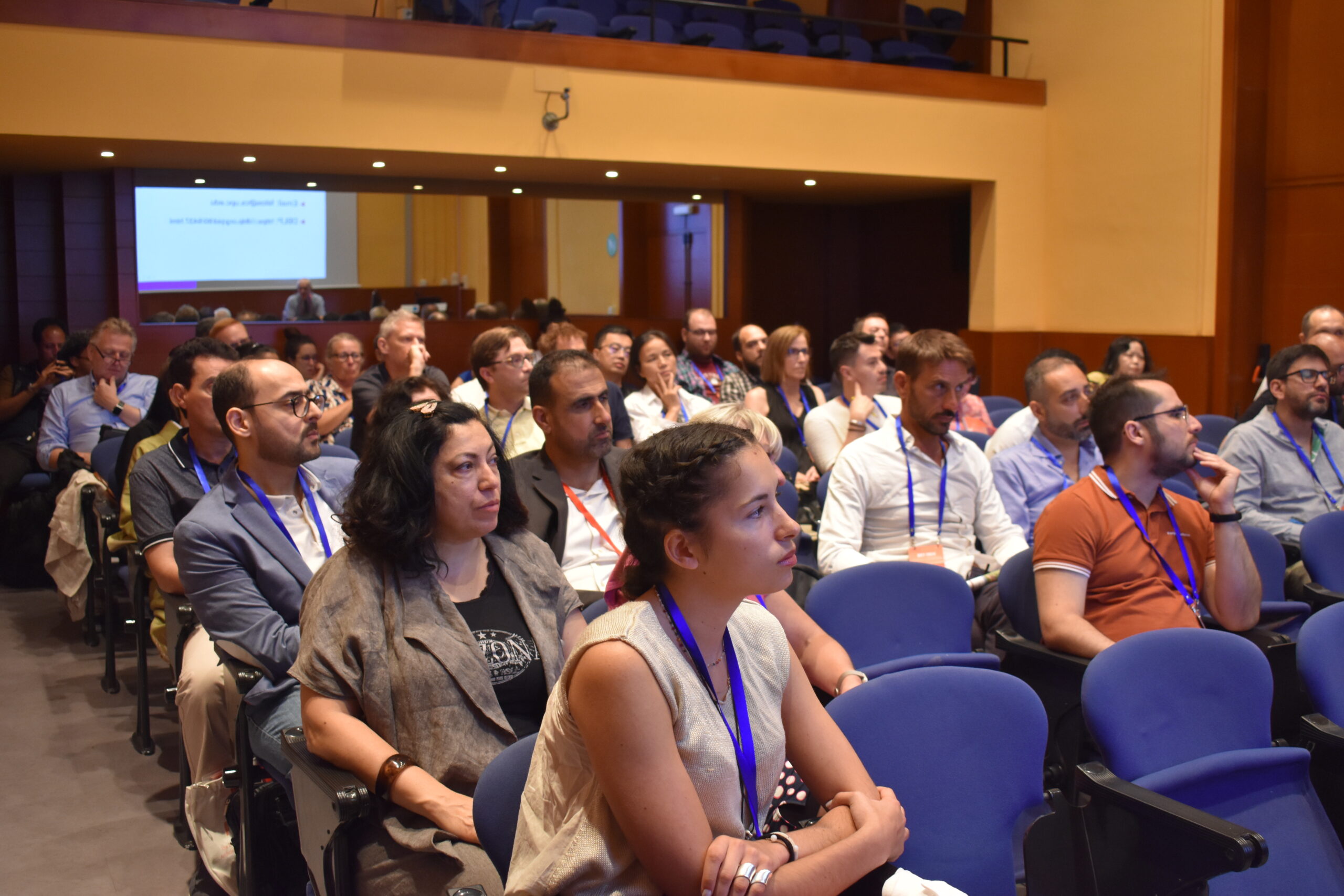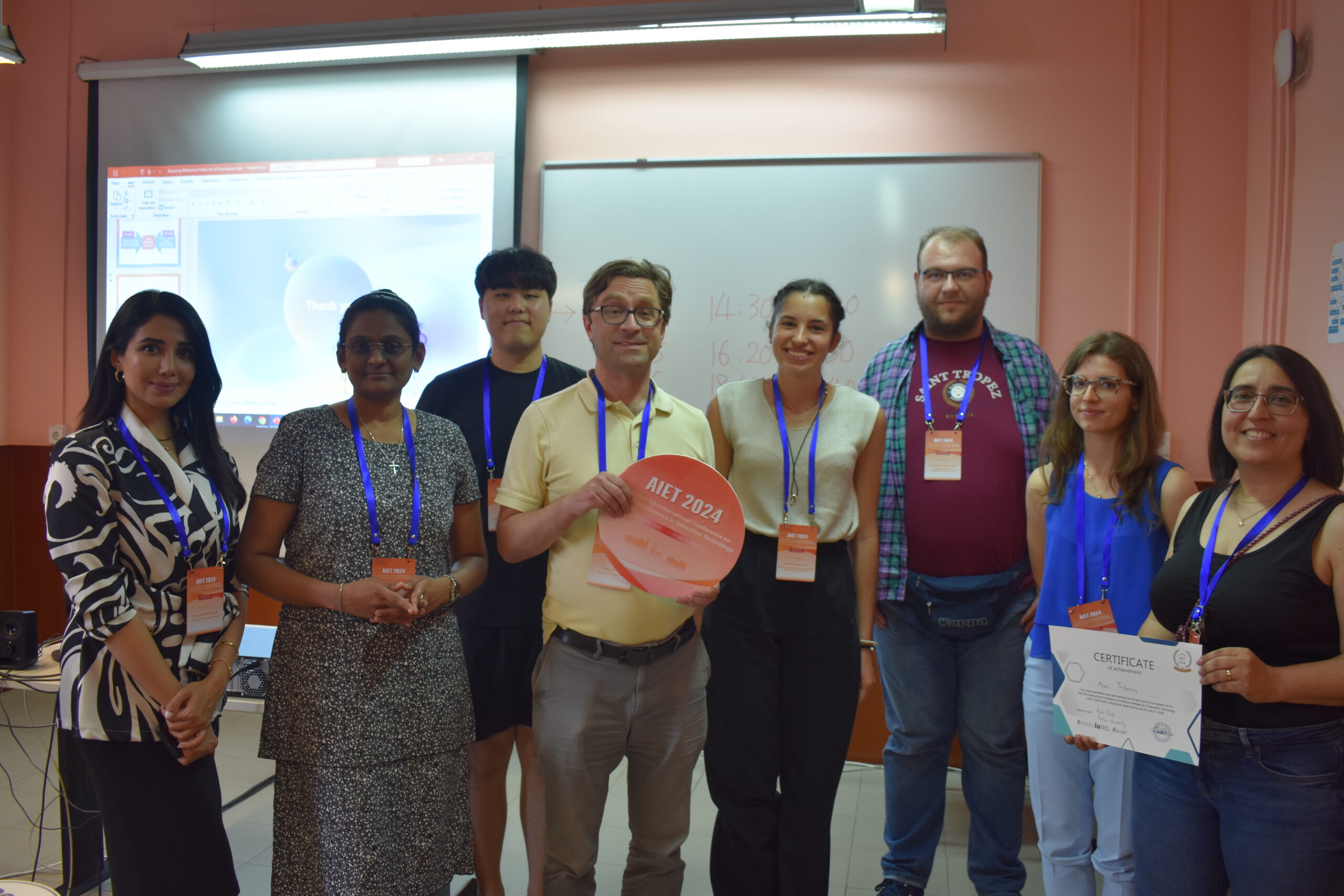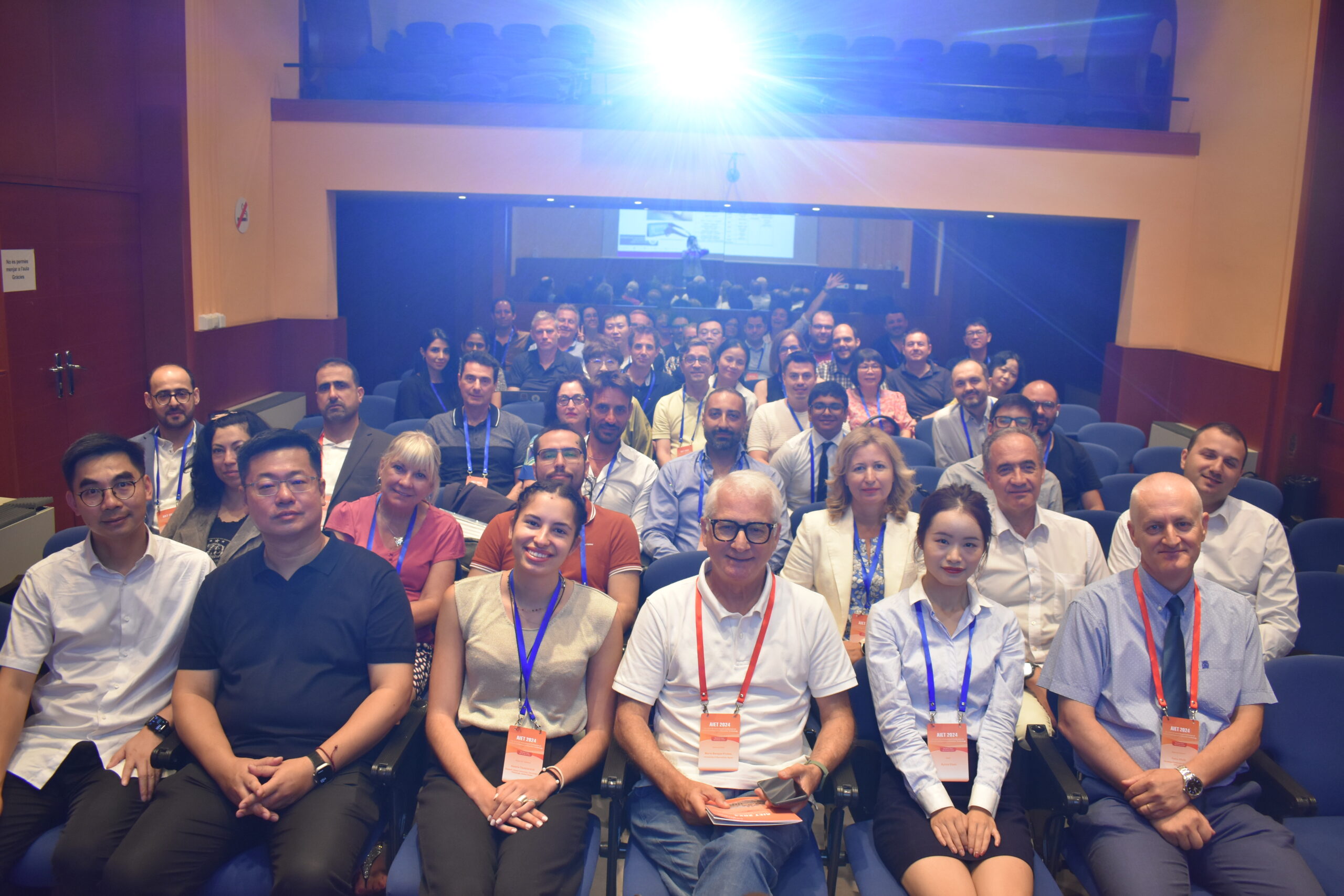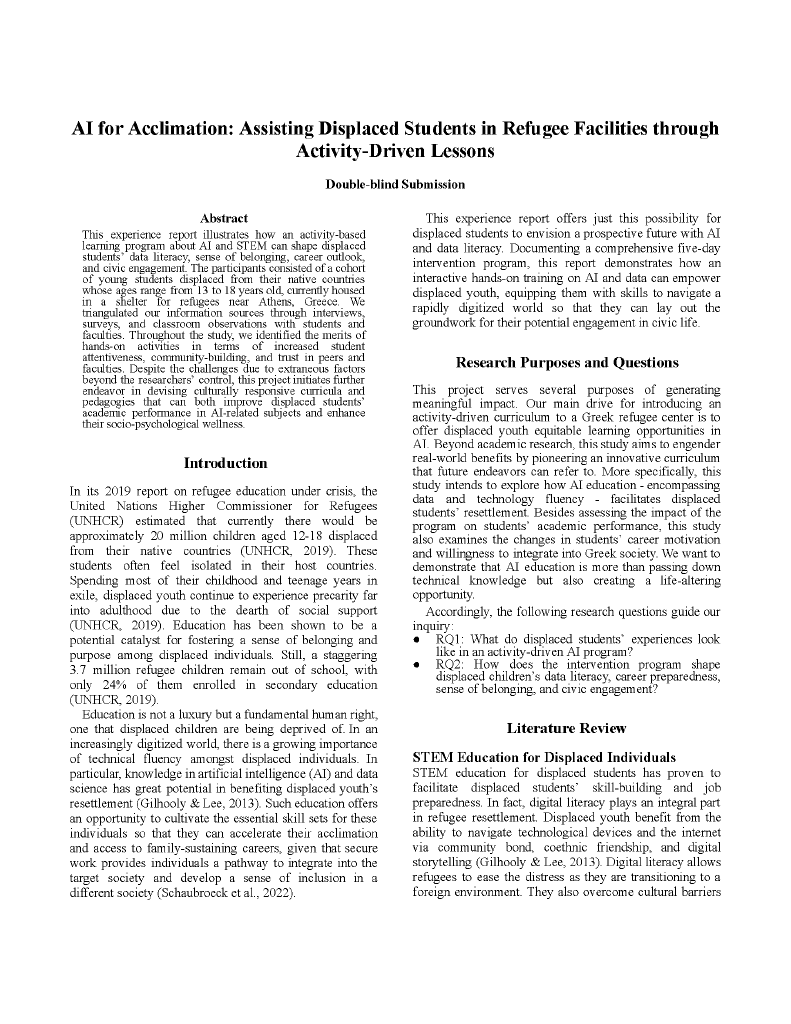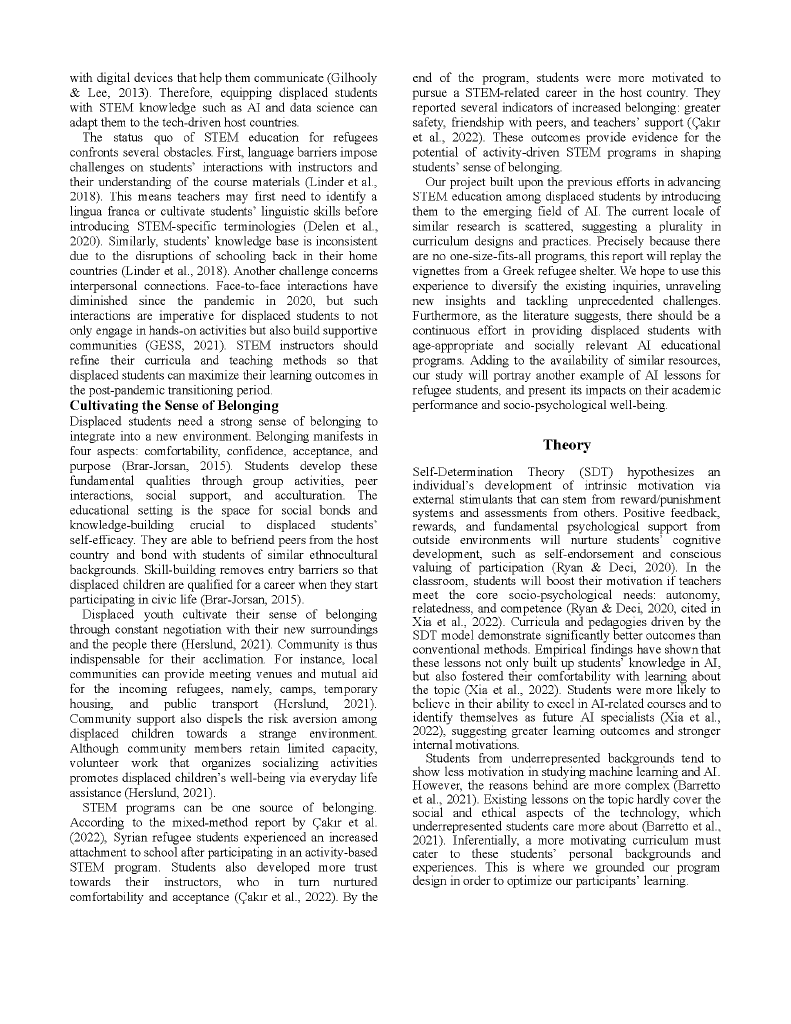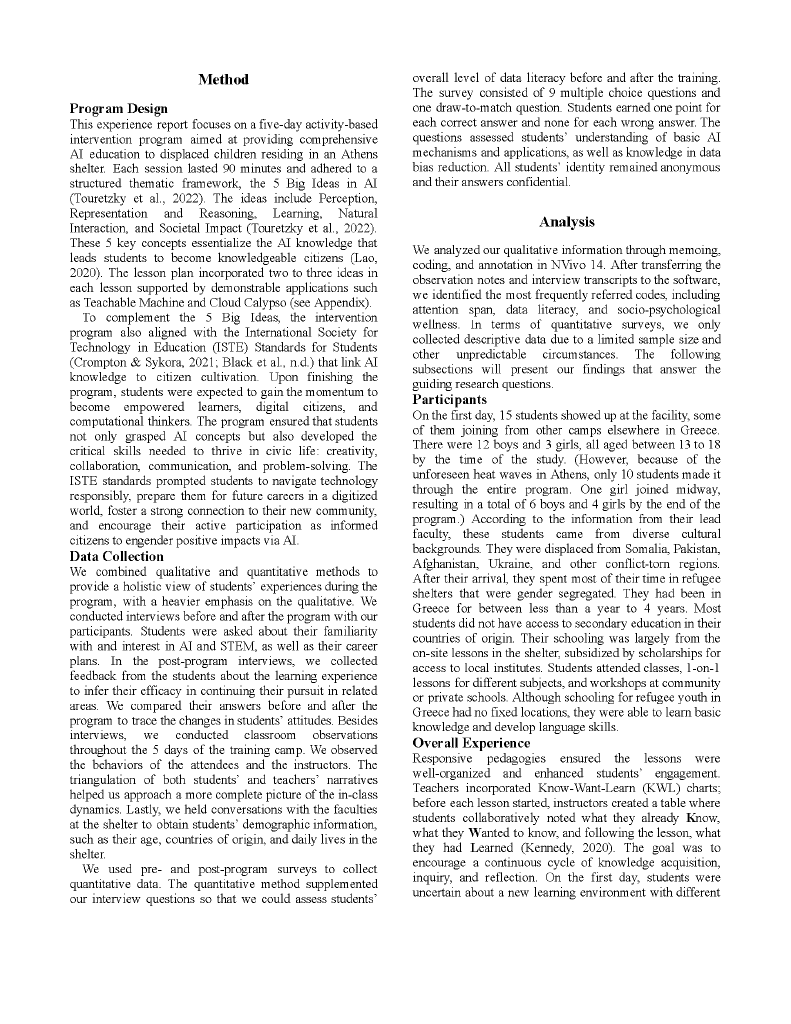Empowering all students to improve our world with AI.
AI for Acclimation
Through the “AI for Acclimation” program, we are dedicated to bridging the AI education gap for displaced youth. Our mission is to provide equitable learning opportunities in AI and STEM for refugees, empowering them with essential skills to thrive in a digital world and fostering their sense of belonging and civic engagement in their host communities.
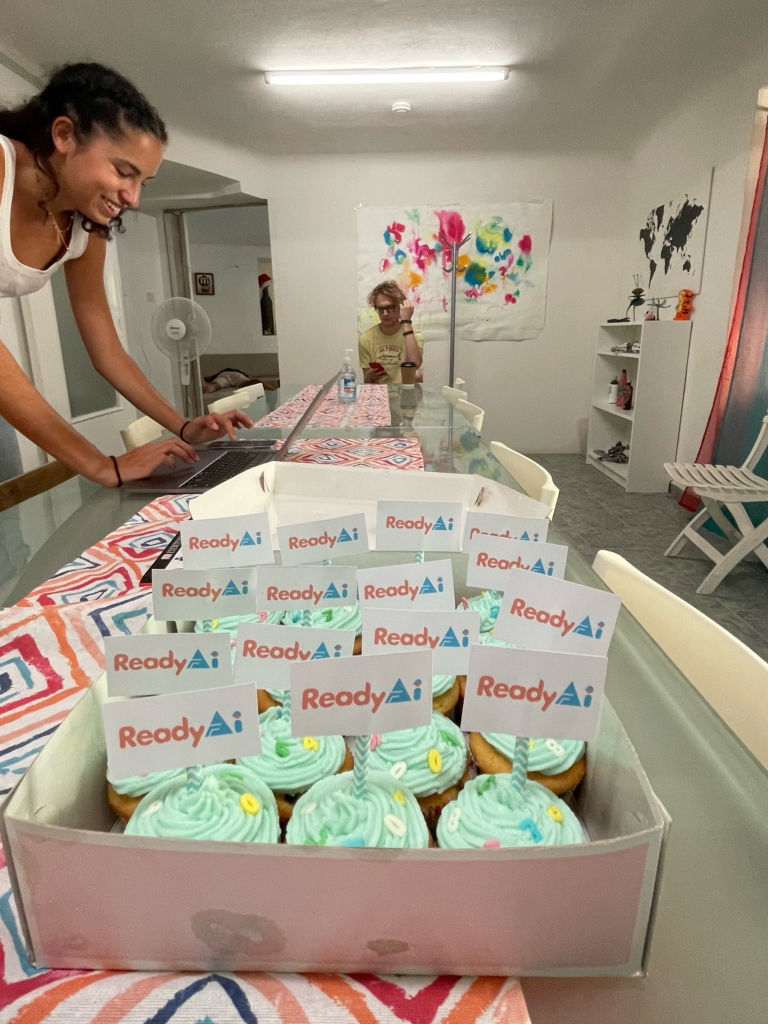
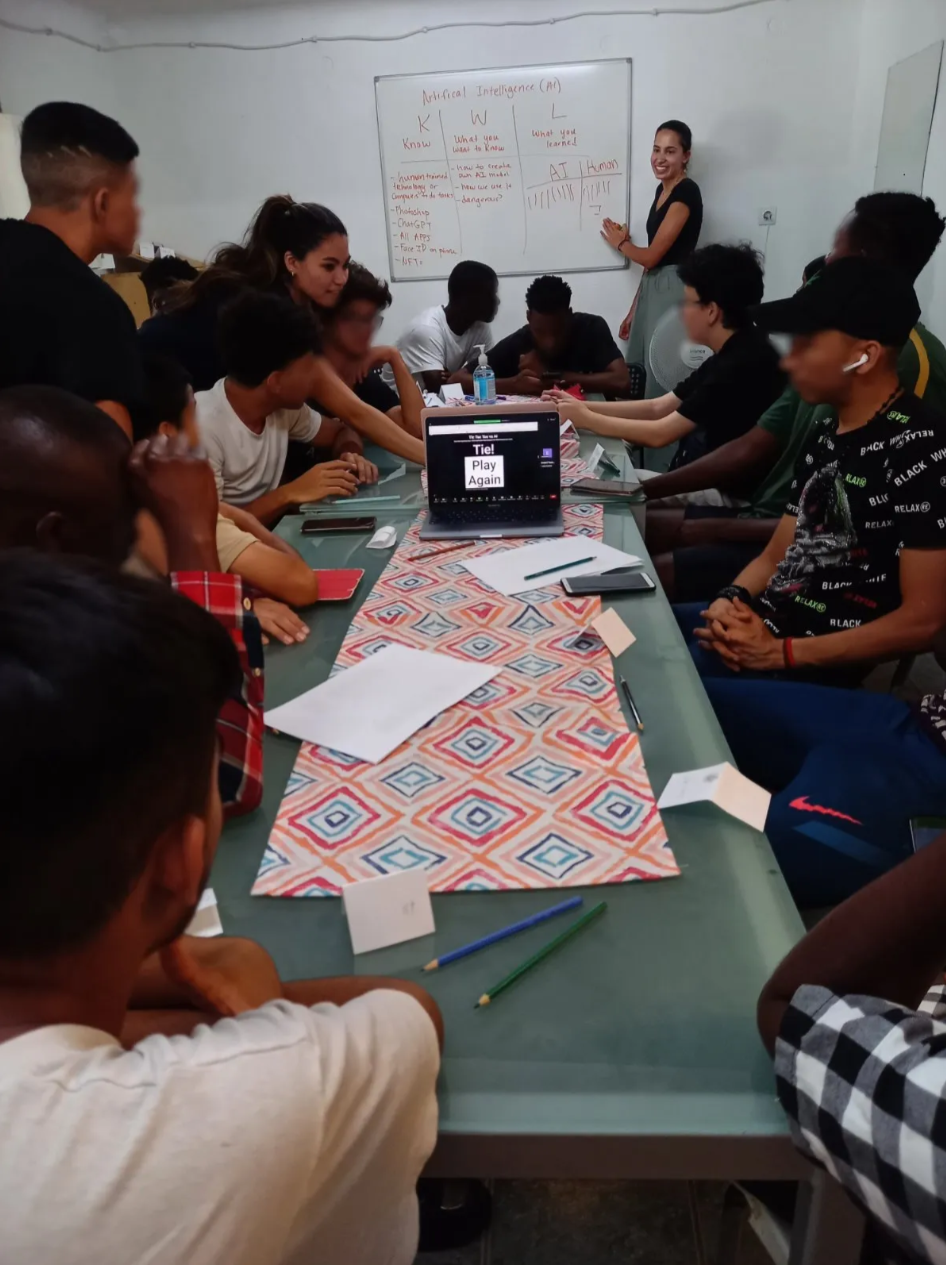
Empowering all students to improve our world with AI.
We collaborate with educators and schools worldwide to teach students, create comprehensive AI curriculums, provide teacher trainings, and organize competitions, ensuring that AI education is engaging and accessible for everyone.
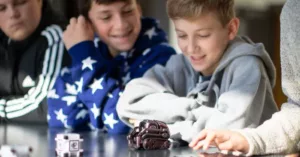
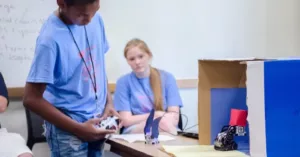
About Us
Each year, we organize immersive summer camps focused on hands-on AI education. Our camps are designed for young refugees aged 13 to 18, residing in shelters, with our latest camp being held near Athens, Greece. These camps aim to introduce students to the foundational concepts of AI through interactive, activity-driven lessons, fostering both technical skills and socio-psychological wellness.
- Data Literacy and Career Preparedness: We aim to enhance students’ understanding of AI and data science, equipping them with skills necessary for future careers in tech-driven societies.
- Sense of Belonging: Through group activities and peer interactions, we strive to build a supportive community where students feel accepted and confident.
- Civic Engagement: Our programs encourage students to see the societal impacts of AI and inspire them to participate actively and responsibly in their new communities.
- Activity-Driven Learning: Our curriculum is centered around interactive and practical activities that align with the 5 Big Ideas in AI: Perception, Representation and Reasoning, Learning, Natural Interaction, and Societal Impact. This approach ensures that students not only learn about AI but also see its relevance in everyday life.
- Culturally Responsive Pedagogy: We recognize the unique challenges faced by displaced students, such as language barriers and varying educational backgrounds. Our programs are tailored to address these challenges, ensuring an inclusive and supportive learning environment.
- Community Building: We emphasize the importance of community and peer support in our programs. By fostering a sense of belonging, we help students build relationships with their peers and instructors, creating a network of support that extends beyond the classroom.
Our programs have shown promising results in improving data literacy, career motivation, and civic engagement among displaced youth. Despite challenges such as environmental factors and language barriers, our students have demonstrated significant progress and enthusiasm for AI-related fields. Moving forward, we aim to expand our programs to other refugee facilities globally and continue to refine our curriculum to better serve the needs of displaced students.
Join us in our mission to empower displaced youth through AI education. Together, we can create a future where every student has the opportunity to succeed and contribute to society!
Seeing the smiles on their faces and the gradual bond we began to develop reminded me that, at the end of the day, kids need someone to believe in them and give them a voice.
Students started the day by saying, “Good Morning”, “Hello! How are you?”, and bid us adieu with a “Have a good day!”, “Thank you”, as well as rounds of applause at the end of the lesson. This was the highlight of the camp for me. It really demonstrated the bond we were able to create with the students and it was proof of how much they appreciated the impact of our presence.
Our Team
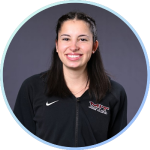
Amalia Christina Toutziaridi – amaliat@mit.edu
Undergraduate student at MIT and AI education Fellow at ReadyAI
Amalia is a second-year student at MIT majoring in Computer Science & Engineering with a concentration in Education. Her passion lies in AI and education, as well as the intersection of the social sciences with computer science. In her past projects she has worked on developing an AI-integrated app to help visually impaired people navigate, while she is currently a research assistant at MIT’s Teaching Systems Lab, investigating student-teacher interactions and Large Language Models.

Erica Hooshi
Senior at Yale Undergraduate University, majoring in Molecular Biophysics and Biochemistry (BS) with concentration in Medicine
Erica is in a Computational Organic Chemistry Synthesis research lab at Yale, where they predict how molecules will interact with each other through computer science and AI. She plans on attending Medical School and eventually tying in medicine with AI and technology. She has always believed that AI is the future. This was her second project with ReadyAI and she looks forward to continuing working on projects.

Eryka Wilson – eryka@pitt.edu
Master of Art in English: Rhetoric and Composition from Florida Atlantic University
Eryka Wilson (she/her) is a professor of English at Keiser University, and an academic advisor and instructor at the University of Pittsburgh. She teaches various levels of composition, including first year composition, professional writing, and research writing. Most recently, Professor Wilson researches the intersection between AI and K-12 education. She has presented her research at conferences in the United States, Japan, and Germany. Her work has been recently published in the International Society of the Learning Sciences, The Explicator, and the Community College Journal of Theory and Practice.

Zephyr Simus
Rising 2nd-Year Yale Student and ReadyAI Summer Intern
Zephyr is self-motivated student with interests in international relations, Artificial Intelligence, social activism/justice, digital photography and design, a cappella singing, and electric guitar. Academically, he is particularly interested in the convergence of art, Artificial Intelligence, activism, race, and place, specifically the potential for music, film, technology, and visual arts to foster improved intercultural understanding and exchange.

Shuhan Li – shuhan.li.2000@gmail.com
Research & Content Development Specialist at ReadyAI
Shuhan has a masters degree in International & Comparative Education at Teachers College. They specialize in curriculum design and education research. Their passion about digital literacy and AI ethics motivated them to work on the Greece project last summer.

